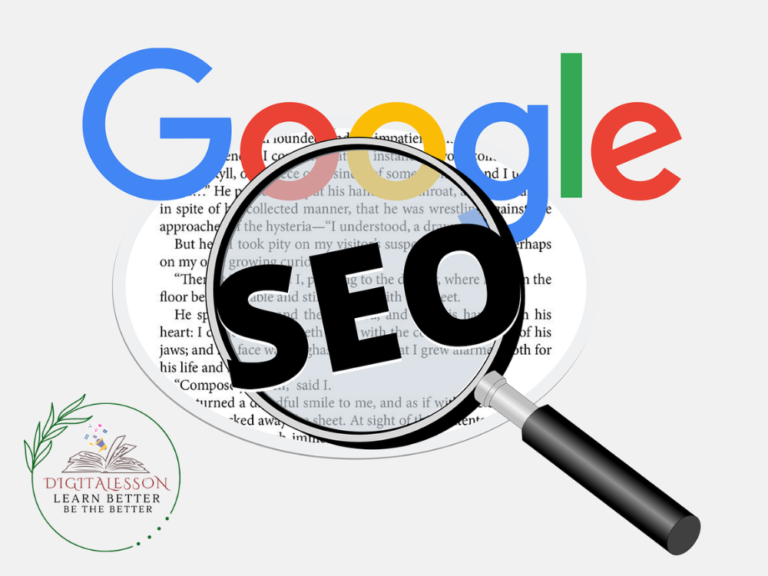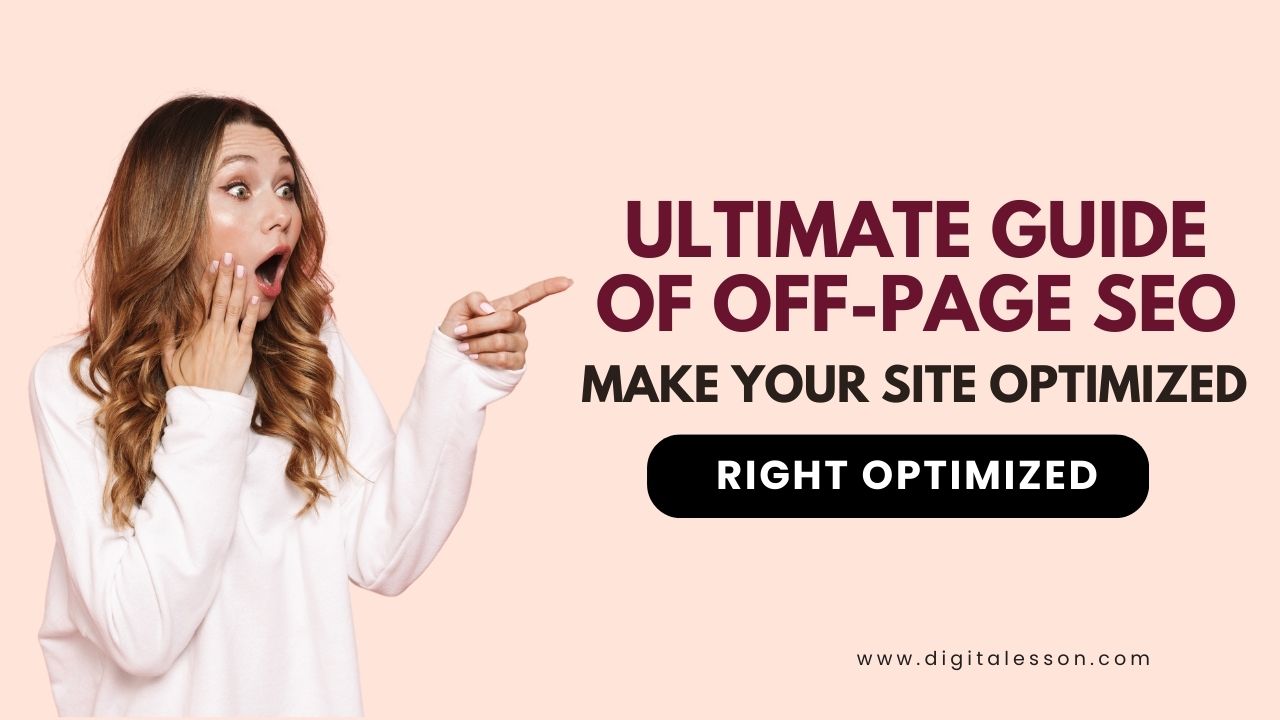Table of Contents
Here is a set of 20 crucial techniques that can help to enhance the Off-page search engine optimization (SEO) efforts of a website, focusing on off-page strategies that can boost its visibility, authority, and ranking. These proven techniques are specifically designed to optimize a website’s presence outside of its pages, including tactics like link building, social media engagement, content marketing, and more. These strategies are expected to be effective in the year 2024 and beyond, Consequently making them essential for any website owner or digital marketer looking to stay ahead of the competition.
What is On-Page SEO?
On-page SEO, also known as on-site SEO, involves making changes to webpages and their content to make them more visible and user-friendly for search engines. This can help improve a web page’s ranking on Google and attract more organic traffic. Some common tasks associated with on-page SEO include optimizing for search intent, title tags, internal links, and URLs.
What is Technical SEO?
Technical SEO focuses on enhancing a website’s technical elements to boost its pages’ ranking in search engines. Improving website speed, crawlability, and search engine understanding are the key components of technical optimization.
What is Off-Page SEO?
Off-page SEO refers to the methods used to improve a website’s visibility and ranking on search engine results pages (SERPs) that are implemented outside of the website itself. This includes actions taken on other websites or online platforms to enhance the authority, credibility, and popularity of the website. While on-page SEO focuses on optimizing the content and structure of the website. Off-page SEO involves external strategies to improve its search engine ranking.
Before acquiring backlinks for your target websites, it’s important to consider three key factors:
Relevancy : It’s essential to ensure that the website you are seeking backlinks from is relevant to your niche. The relevance of the website is a crucial factor in determining the quality of the backlinks. The more relevant the website, the more valuable the backlinks will be for your site. Therefore, it’s essential to conduct thorough research to find relevant websites that can provide high-quality backlinks to your site.
Authority : When assessing a website, it is important to consider its authority. Authority refers to the level of trustworthiness and credibility that a website has established within its industry or niche. This can be determined by examining factors such as the website’s age, its backlink profile, and the quality of its content. Websites with a strong authority score are more likely to rank well in search engine results and attract high-quality traffic.
Reputation :One way to gauge a brand’s reputation is by analyzing the amount of traffic they receive and the overall reviews they have received. These factors can provide valuable insights into how well-regarded the brand is by its customers and the wider public. By examining these metrics, it’s possible to gain a better understanding of the brand’s strengths and weaknesses, which can inform future business decisions and marketing strategies.
Top 20 Off-Page SEO Strategies To Boost Rankings with Examples.
Discover the best 20 Off-Page SEO Techniques that can help you boost your website’s ranking on search engines. These techniques are proven and effective, and come with real-life examples to help you understand how they work. By implementing these techniques, you can improve your website’s visibility and attract more organic traffic to your site.
Quality Link Building : Quality link building is a search engine optimization (SEO) technique that includes obtaining high-quality, relevant, and authoritative backlinks to a website. These backlinks are vital in determining a site’s search engine rankings. The notion is predicated on the premise that search engines see connections from credible and relevant sources as an endorsement or vote of confidence in a website’s content.
Social Media Engagement : Social media engagement refers to consumers’ interactions with material on social media networks. It extends beyond the number of followers or likes to include behaviors like comments, shares, clicks, and engagement in debates. The degree of involvement is an important indication of the efficacy and popularity of social media posts.
Social Bookmarking: Social bookmarking is a way of saving and organizing web links on the internet, as well as sharing them with others. Instead of saving bookmarks in a browser, users save and organize them on web-based platforms. These platforms allow users to tag, annotate, and share their bookmarks with others. Social bookmarking sites act as centralized repositories of bookmarks that can be accessed from any device with internet connectivity.

Influencer Marketing : Influencer marketing is a type of marketing where businesses work with people who have a large and dedicated following on social media or other online platforms. These people, called influencers, can sway the opinions and buying choices of their followers because they are seen as trustworthy and knowledgeable in a specific area or industry.
Content Marketing : Content marketing is a marketing strategy that revolves around creating and sharing valuable and relevant content to attract and engage a specific audience. The main objective is to build a connection with the audience, establish trust in the brand, and ultimately encourage customers to take action that benefits the business. Content marketing distributes various content types, like blog posts, videos, and infographics, across multiple online platforms.
Guest Blogging : Guest blogging, also known as guest posting, is a content marketing strategy where an individual or a representative of a company writes and publishes a blog post on a website that is not their own. The purpose of guest blogging is to reach a new audience, build relationships with other bloggers or website owners, and establish authority or credibility in a particular industry or niche.
Forum Participation: Forum participation refers to taking part in online discussion forums or communities where people with similar interests come together to share information, ask questions, and talk about different topics. These forums can cover a wide range of subjects, from specific hobbies to professional industries. By participating in forums, individuals can connect with others who share their interests, seek advice, share their knowledge, and contribute to discussions. It’s a way for people to engage with like-minded individuals and learn from each other.

Question and Answer Platforms : Question and answer (Q&A) platforms are websites or apps where people can ask questions and get answers from other users. These platforms help people share their knowledge, opinions, and connect those who need help with those who can provide it. They are designed to connect people with questions to people who have the knowledge or experience to answer them.

Broken Link Building : In search engine optimization, broken link building is a strategy that involves finding broken or dead links on other websites and suggesting replacing them with links to your content to increase the number of links to your website. The process includes identifying relevant websites with broken links. Contacting the website owners, and proposing your content as a replacement for the broken link. This can help improve your website’s search engine rankings and drive more traffic to your site.
Podcast Guest Appearances : Podcast guest appearances involve individuals participating as guests on podcasts to share their expertise, experiences, or insights with the podcast audience. This form of content creation and promotion allows guests to reach a new audience, establish authority in their niche, and connect with the podcast host and their listeners.
Image and Document Sharing: Image and document sharing involves the act of spreading visual content, such as images, graphics, and documents, on different online platforms. This can be a part of a content marketing plan to enhance visibility, expand the audience, and offer useful information in a visual form.

Local SEO : Local SEO is a digital marketing strategy that focuses on improving a business’s online visibility to attract more customers in a specific geographic area. The goal is to make the business more visible in local search results. When people are looking for products or services in that area. This is especially important for businesses with physical locations or those targeting specific local markets.
Video Marketing: Video marketing is a way of promoting a product, service, or brand using videos. It is a digital marketing strategy that involves creating and sharing videos to engage with an audience. Videos are effective for conveying information, telling stories, and connecting with viewers on an emotional level. Moreover, video marketing is an effective way to increase brand awareness, drive traffic to websites, and boost overall engagement.

Infographic Outreach : Infographic outreach is a marketing strategy that involves creating and sharing infographics to reach a larger audience and gain backlinks to your website. Infographics are visual representations of information, and knowledge, using images and text to explain complex ideas in an easy-to-understand format. Infographic outreach focuses on using these visual assets to attract attention, promote sharing, and obtain links from other websites.
Document Sharing: Sharing documents is a digital marketing and content distribution strategy. Where you share documents or files across different online platforms to increase visibility, brand awareness, and audience engagement. This method allows businesses and individuals to share valuable information, educational content, in a document format, such as PDFs, slideshows.

Local Citations : Local citations are mentions of a business’s name, address, phone number, and other important information on various online platforms such as local business directories and websites. Citations are crucial for Local SEO as they confirm a business’s location and contact details’ accuracy and legitimacy.
Web 2.0 Submission : A method used in search engine optimization (SEO) to build links to a website is known as Web 2.0 submission. It involves creating and posting content on Web 2.0. Which are websites that allow users to create and share content collaboratively. SEO professionals use these platforms to create online properties and improve website visibility by gaining backlinks.
Press Releases: Companies send press releases as written or recorded messages to media outlets to announce news, events, launches, other important developments. An essential part of public relations and communications strategies, press releases inform journalists, bloggers, and the public about notable events.

Co-Marketing Campaigns : Co-marketing campaigns are when two or more companies work together to create and promote a marketing campaign. This allows the companies to combine their resources, reach each other’s audiences, and make their marketing efforts more impactful. It’s a mutually beneficial arrangement where the companies share the responsibilities, costs, and rewards of the campaign.
Brand Mentions: Brand mentions are when a brand’s name or services are mentioned or discussed online, on websites, social media, forums, or other digital channels. These mentions can happen in different contexts, such as articles, blog posts, social media posts, reviews, and discussions. Monitoring brand mentions is crucial for managing online reputation and increasing brand awareness.

Remember, the effectiveness of these techniques may vary depending on your industry and specific goals. Consistency and a focus on providing value to your audience are key factors in successful off-page SEO efforts.




Hello from Sporthappy.
Hello From Digitalesson, How Can we help you ?